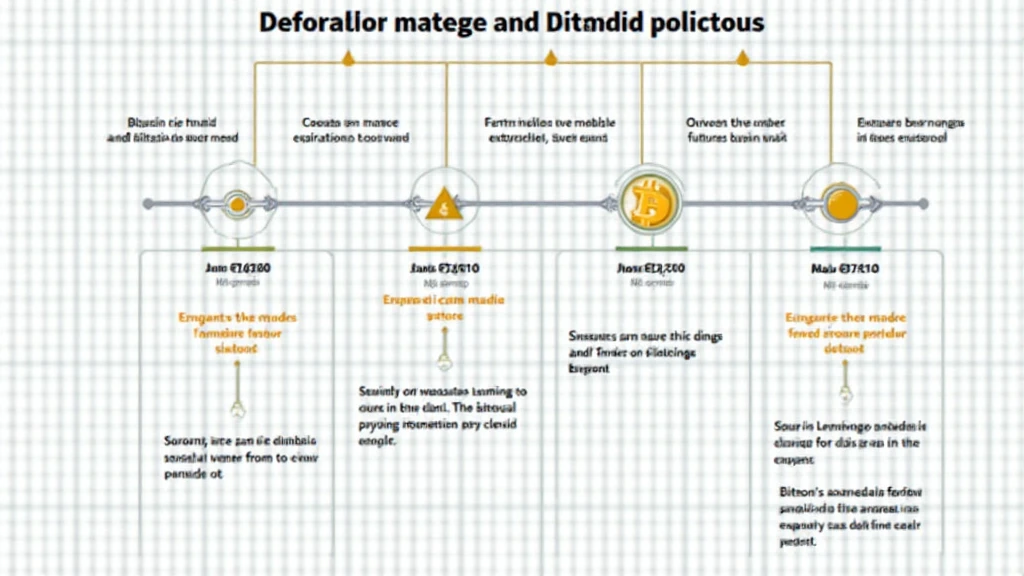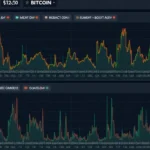Understanding Bitcoin Futures Expiration Dates
In the tumultuous world of cryptocurrencies, Bitcoin has emerged as a frontrunner, known for its volatility and the vast opportunities it offers traders. As of 2024, approximately $5 billion in Bitcoin trades occur daily, and many emerging traders are keen on leveraging Bitcoin futures to maximize their gains and manage risks. However, as compelling as trading Bitcoin futures can be, understanding the expiration dates associated with these contracts is paramount. Why? Because the expiration of Bitcoin futures can influence market dynamics, trading strategies, and overall investor sentiment.
What are Bitcoin Futures?
To contextualize the significance of expiration dates, let’s begin with a brief overview of Bitcoin futures. A Bitcoin futures contract is a legal agreement to buy or sell Bitcoin at a predetermined price on a specified date in the future. Traders often utilize these contracts to hedge against price fluctuations or speculate on the asset’s future price movements.
As such, Bitcoin futures have several key features:

- Standardization: These contracts typically adhere to a standard size, such as 5 BTC per contract, making them easy to trade on exchanges.
- Leverage: Futures trading often allows investors to trade with leverage, meaning they can control larger positions with a smaller amount of capital.
- Cost-effectiveness: Futures contracts can be a more economical way to gain exposure to Bitcoin than purchasing the asset outright, especially for investors looking to avoid direct ownership.
The Importance of Expiration Dates
Bitcoin futures come with set expiration dates. Understanding these dates plays a crucial role in a trader’s strategy, as they dictate when contracts settle, impacting market liquidity and price volatility.
During significant market movements or near expiration dates, you may notice accelerated trading volume and price fluctuations due to various factors, including:
- Market sentiment leading up to expiration.
- Traders closing their positions to lock in profits or minimize losses.
- Automatic liquidation of positions if traders do not take action.
How Expiration Dates Impact Trading Strategies
To illustrate the impact of expiration dates, consider the analogy of a real estate contract. Just as sellers and buyers must commit to a timeline, futures traders strategize around these expiration points:
- Prior to Expiration: Traders may increase positions in anticipation of gaining or avoiding losses, which heightens market activity.
- At Expiration: Traders need to decide whether to roll over their contracts or close positions, affecting market stability.
- After Expiration: The market often sees a correction, as traders recalibrate strategies based on the new landscape post-expiration.
Key Expiration Dates for Bitcoin Futures
Typically, Bitcoin futures expire on the last Friday of each month. Understanding the specific expiration dates can help traders make informed decisions:
| Month | Expiration Date |
|---|---|
| January | Last Friday of January |
| February | Last Friday of February |
| March | Last Friday of March |
| April | Last Friday of April |
| May | Last Friday of May |
| June | Last Friday of June |
How to Prepare for Expiration Dates
Preparation for expiration dates can make or break a trading strategy. Here’s how you can gear up for Bitcoin futures expiration:
- Track Historical Data: Analyze past price movements around expiration dates using platforms such as CoinMarketCap.
- Set Alerts: Utilize trading platforms to set alerts on expiration days for timely trading actions.
- Diversify Strategies: Have various strategies in place, like shorting or rolling over contracts.
The Vietnamese Market Landscape
In Vietnam, cryptocurrency activity is rapidly growing, with Vietnam’s user growth rate projected to surpass 25% in 2024. As Vietnamese traders become more familiar with Bitcoin and its futures market, understanding these expiration dates is essential. Considering local nuances helps in crafting approaches that align with cultural trading practices.
For instance, Vietnamese investors may prefer:
- Daily trading versus long-term holds.
- A strong inclination towards leveraging contracts to maximize gains.
- Seeking quick returns through aggressive trading strategies around expiration dates.
Building a Solid Trading Plan
Having a robust trading plan is vital. Here’s an example framework adapted for the Vietnamese market:
- Set Clear Goals: Define profit targets and acceptable risks.
- Incorporate Technical Analysis: Utilize charting tools to identify trends.
- Risk Management: Implement stop-loss orders to mitigate large losses.
Conclusion
Understanding Bitcoin futures expiration dates is a fundamental aspect of trading. As volatility increases around these dates, having a proactive strategy is crucial for managing risks effectively. Whether you’re a seasoned trader or a novice exploring strategies, knowledge about expiration dates can significantly improve your trading efficacy.
To navigate the complexities of Bitcoin futures and the broader crypto market, consider utilizing reputable resources. Officialcryptonews serves as an excellent platform for staying updated with the latest developments and insights in the cryptocurrency domain.
This article does not constitute financial advice. Always consult with local regulatory guidelines before making investment decisions.





